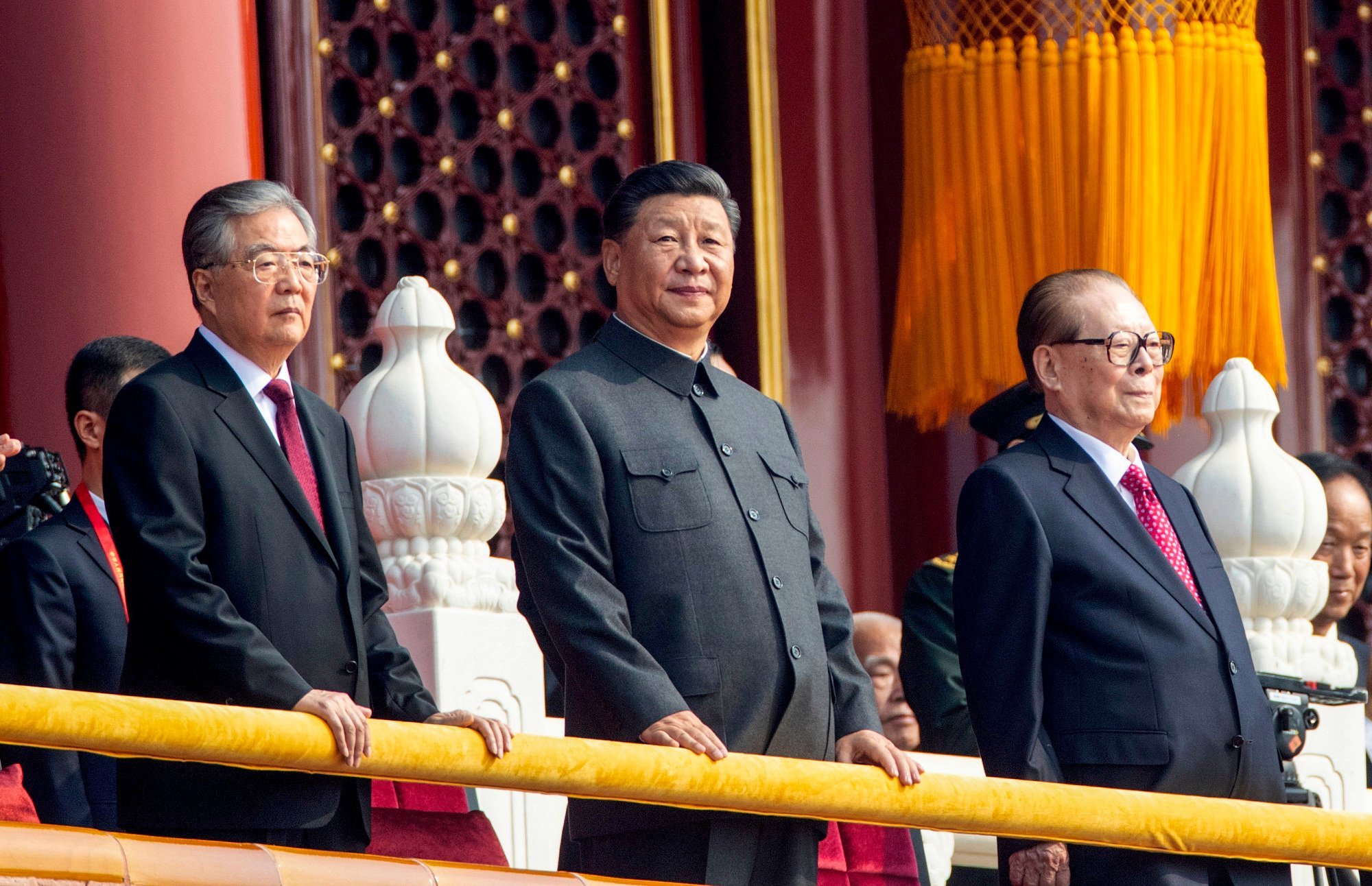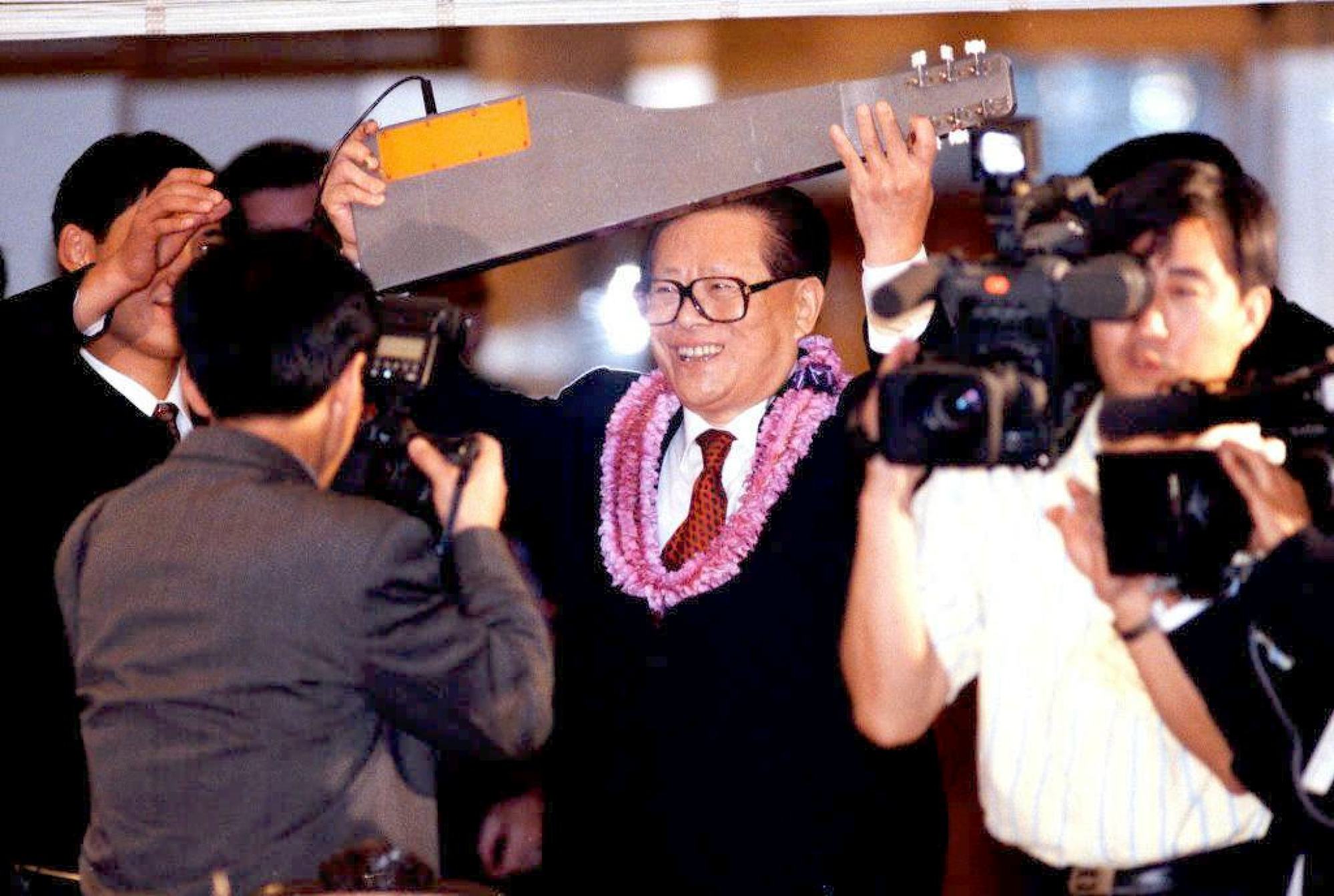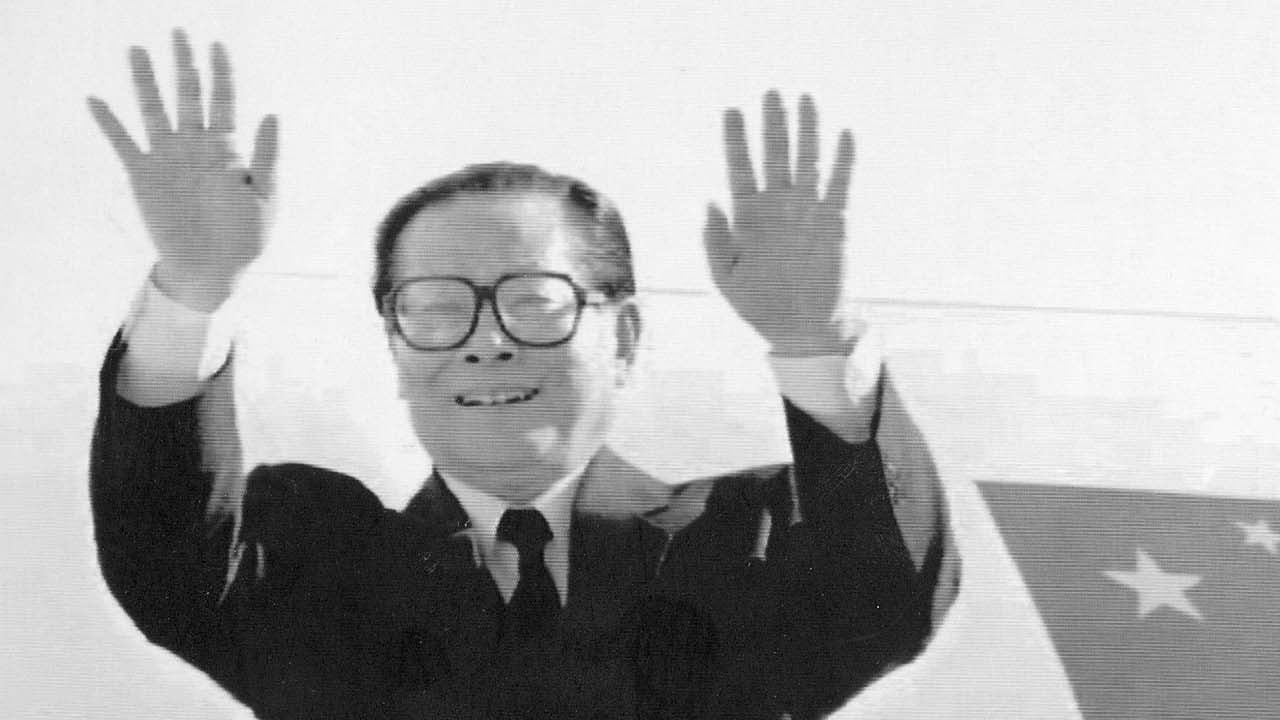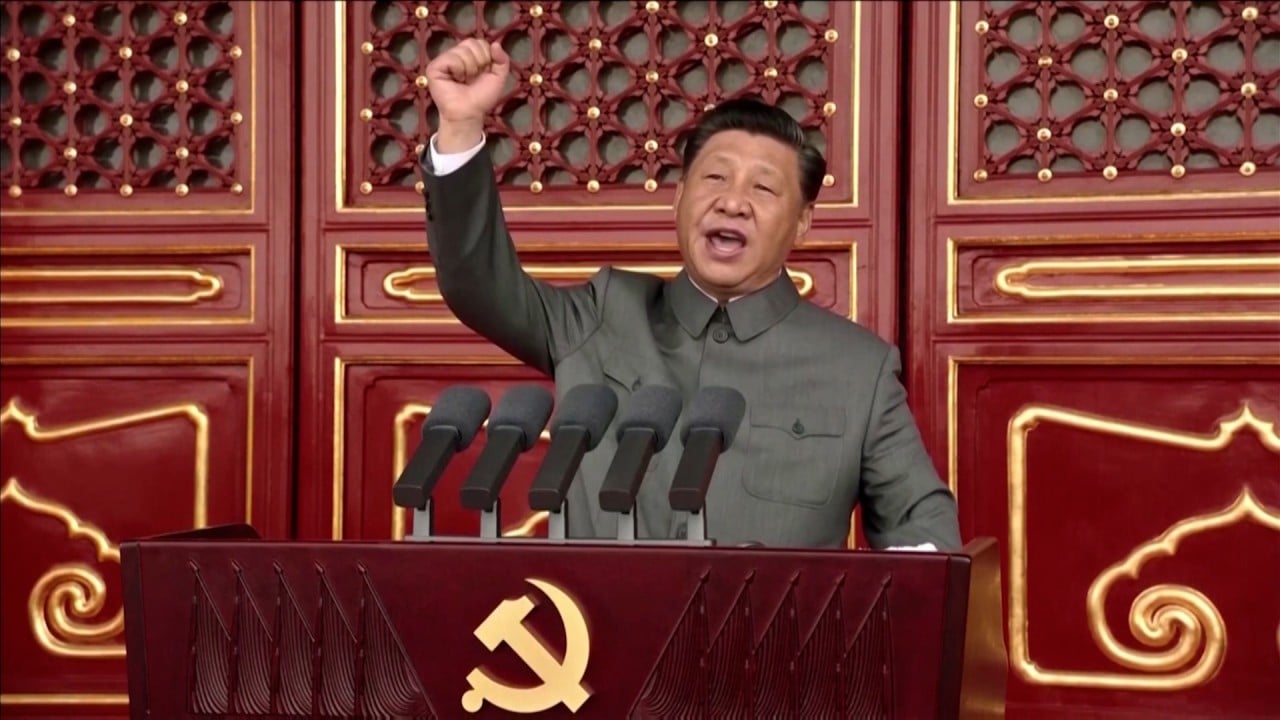
Chinese leadership mourns ‘insurmountable loss’ of Jiang Zemin as former president dies aged 96
- Jiang, who led China into the WTO and presided over Hong Kong’s return to Beijing’s rule, died on Wednesday from leukaemia and multiple organ failure
- Xi Jinping expresses his grief at loss of ‘great Marxist’, while official obituary praises his ‘outstanding’ leadership and peaceful handing over of power
Former president Jiang Zemin, one of China’s most influential leaders who spearheaded the country’s accelerated opening up and growth into a global powerhouse, died on Wednesday in Shanghai. He was 96.
Jiang, who oversaw China’s accession to the World Trade Organization in 2001 and cultivated warm ties with the United States, died of leukaemia and multiple organ failure at 12.13pm, according to state news agency Xinhua.
An official obituary published by the news agency hailed him as a “highly prestigious and outstanding leader”.
It continued: “Comrade Jiang Zemin’s passing is an insurmountable loss to our party, our military and our people.”
President Xi Jinping described Jiang as a “great Marxist”, a “socialist warrior” and an “outstanding leader” during a meeting with his Laotian counterpart Thongloun Sisoulith.
“We mourn Comrade Jiang Zemin in great grief,” he said, adding that the Communist Party will “transform our grief into power”.
The official obituary praised Jiang for a wide range of contributions, including his role in helping the party survive the 1989 crisis.
It said he had helped “maintain stability in Shanghai” that year and hailed his role in “turning a new page for our country’s reform and opening up, and socialist modernisation”.
Jiang’s promotion came as the West turned its back on China over its violent handling of the demonstration, often labelled the Tiananmen crackdown.
Jiang Zemin: the president who took China from Tiananmen pariah to rising power
But the subsequent years saw him preside over some highly symbolic moments, marking the country’s further integration with the US-led global system and higher status as a world power.
It was also in 2001, under Jiang’s watch, that Beijing secured host nation status for the 2008 Summer Olympics.
Other achievements listed in the official memorial statement included seeking a “peaceful reunion” with Taiwan under the one country, two systems policy and adopting “independent and peaceful” foreign policies.
He pushed forward China’s military reform, the document added, with a “long-term impact in the direction of strengthening national security and the modernisation of the military”.
Under Jiang’s leadership, China was able to progress in a “correct direction” as it “faced a series of international issues involving sovereignty and security with ease” and “won the battle when facing challenges and risks in political, economic and environmental issues”, the obituary added.

It concluded the “great success” of the party and the country during the 13 years of his leadership was “inseparable” from Jiang’s “great talent, bold vision” and “extraordinary leadership in the arts of politics.”
Xi will lead a 688-member official committee in charge of his funeral arrangements. Its other members include former president Hu Jintao and former premier Zhu Rongji, as well as all current and retired members of the Politburo, including Premier Li Keqiang.
Hong Kong’s chief executive John Lee Ka-chiu and his counterpart from Macau Ho Iat-seng are also members.
Following the announcement of his death, all flags at locations such as Beijing’s Tiananmen Square, the liaison offices in Hong Kong and Macau and all overseas Chinese embassies were lowered to half-mast until after the funeral. No further details of the commemorative events have been provided.
The funeral of China’s last deceased top leader, Deng Xiaoping, was held six days after his death at the Great Hall of the People in 1997.
“Following convention, no foreign governments, political parties or delegations will be invited to attend events in China to pay tribute,” the first official notice published by the funeral committee said.
Funeral halls will also be set up at Chinese embassies and consulates-general for people overseas to pay tribute.
Online wishes pour in as Jiang Zemin turns 95
He was last seen in public on October 1, 2019, taking his place among party elders invited to attend the 70th anniversary celebrations of the founding of the People’s Republic of China, and a military parade to mark the occasion.
Jiang, who served as the party’s general secretary between 1989 and 2002, was the first top leader not to have fought in Mao Zedong’s Communist revolution, which culminated in the creation of the People’s Republic following victory in the civil war in 1949.

Jiang stepped down as party chief in 2002 to hand over the helm to Hu in the first peaceful and orderly power transition in the party since 1949. He stepped down as head of the military in 2004.
The official obituary praised Jiang for his voluntary decision to give up both these leadership roles, saying it had been done out of consideration “for the sustainable development and stable governance of the Party and the country”.
Jiang is remembered by many as a charismatic and confident figure, which made him stand out among other stiff and often inscrutable Chinese leaders.

At age 71, he made headlines for swimming and playing the lap steel guitar in Hawaii, and trying out his skills at singing Peking opera, during a state visit to the US in 1997.
In a contentious interview conducted by 60 Minutes reporter Mike Wallace in 2000, Jiang tackled questions on controversial issues including the Tiananmen crackdown of 1989, the spying case involving Taiwanese American scientist Wen Ho Lee, and tensions across the Taiwan Strait, switching with ease between Chinese and English.




